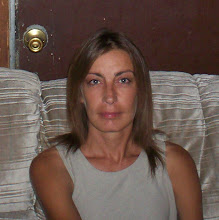By Leila Fadel | McClatchy Newspapers
Baghdad - On Sept. 9, the day before Army Gen. David Petraeus, the U.S. military commander in Iraq, and U.S. Ambassador Ryan Crocker told Congress that things were getting better, Batoul Mohammed Ali Hussein came to Baghdad for the day.
A clerk in the Iraqi customs office in Diyala province, she was in the capital to drop off and pick up paperwork at the central office near busy al Khilani Square, not far from the fortified Green Zone, where top U.S. and Iraqi officials live and work. U.S. officials often pass through the square in heavily guarded convoys on their way to other parts of Baghdad.
As Hussein walked out of the customs building, an embassy convoy of sport-utility vehicles drove through the intersection. Blackwater security guards, charged with protecting the diplomats, yelled at construction workers at an unfinished building to move back. Instead, the workers threw rocks. The guards, witnesses said, responded with gunfire, spraying the intersection with bullets.
Hussein, who was on the opposite side of the street from the construction site, fell to the ground, shot in the leg. As she struggled to her feet and took a step, eyewitnesses said, a Blackwater security guard trained his weapon on her and shot her multiple times. She died on the spot, and the customs documents she'd held in her arms fluttered down the street.
Before the shooting stopped, four other people were killed in what would be the beginning of eight days of violence that Iraqi officials say bolster their argument that Blackwater should be banned from working in Iraq.
During the ensuing week, as Crocker and Petraeus told Congress that the surge of more U.S. troops to Iraq was beginning to work and President Bush gave a televised address in which he said "ordinary life was beginning to return" to Baghdad, Blackwater security guards shot at least 43 people on crowded Baghdad streets. At least 16 of those people died......
The following Sunday, Blackwater guards opened fire as the State Department convoy they were escorting crossed in front of stopped traffic at the al Nisour traffic circle.
While U.S. officials have offered no explanation of what occurred that day, witnesses and Iraqi investigators agree that the guards' first target was a white car that either hadn't quite stopped or was trying to nudge its way to the front of traffic.
In the car were a man whose name is uncertain; Mahasin Muhsin, a mother and doctor; and Muhsin's young son. The guards first shot the man, who was driving. As Muhsin screamed, a Blackwater guard shot her. The car exploded, and Muhsin and the child burned, witnesses said.
Afrah Sattar, 27, was on a bus approaching the square when she saw the guards fire on the white car. She and her mother, Ghania Hussein, were headed to the Certificate of Identification Office in Baghdad to pick up proof of Sattar's Iraqi citizenship for an upcoming trip to a religious shrine in Iran.
When she saw the gunmen turn toward the bus, Sattar looked at her mother in fear. "They're going to shoot at us, Mama," she said. Her mother hugged her close. Moments later, a bullet pierced her mother's skull and another struck her shoulder, Sattar recalled.
As her mother's body went limp, blood dripped onto Sattar's head, still cradled in her mother's arms.
"Mother, mother," she called out. No answer. She hugged her mother's body and kissed her lips and began to pray, "We belong to God and we return to God." The bus emptied, and Sattar sat alone at the back, with her mother's bleeding body.
"I'm lost now, I'm lost," she said days later in her simple two-bedroom home. Ten people lived there; now there are nine.
"They are killers," she said of the Blackwater guards. "I swear to God, not one bullet was shot at them. Why did they shoot us? My mother didn't carry a weapon."
Downstairs, her father, Sattar Ghafil Slom al Kaabi, 67, sat beneath a smiling picture of his wife and recalled their 40-year love story and how they raised eight children together. On the way to the holy city of Najaf to bury her, he'd stopped his car, with her coffin strapped to the top. He got out and stood beside the coffin. He wanted to be with her a little longer.
"I loved her more than anything," he said, his voice wavering. "Now that she is dead, I love her more."
And we have the nerve to wonder why we are hated in so many countries around the world. We have allowed this to happen...we have been asleep at the wheel, with no will to REALLY find out what goes on in our names or to hold our government responsible for their actions.


